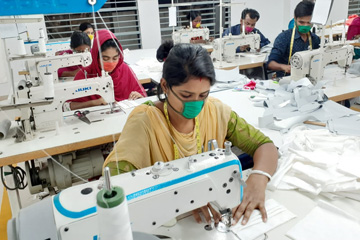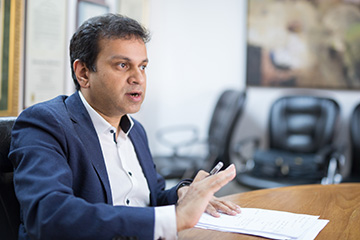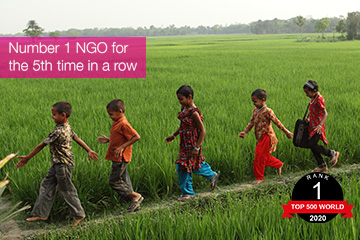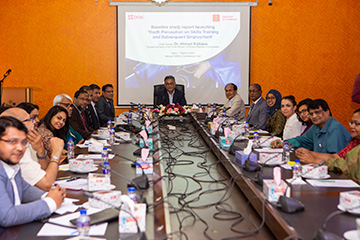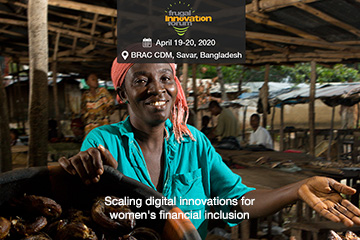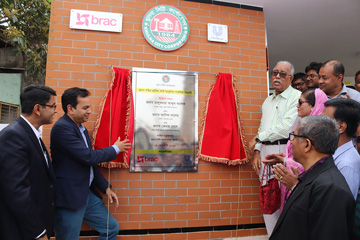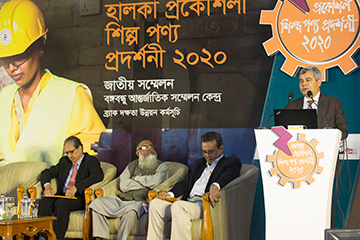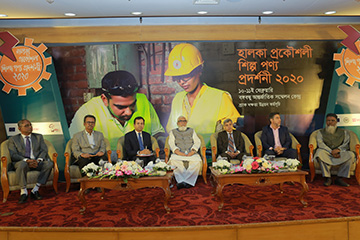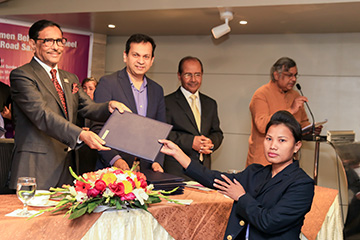
English (959)
Children categories
BRAC starts production of reusable masks and prepares for production of PPE
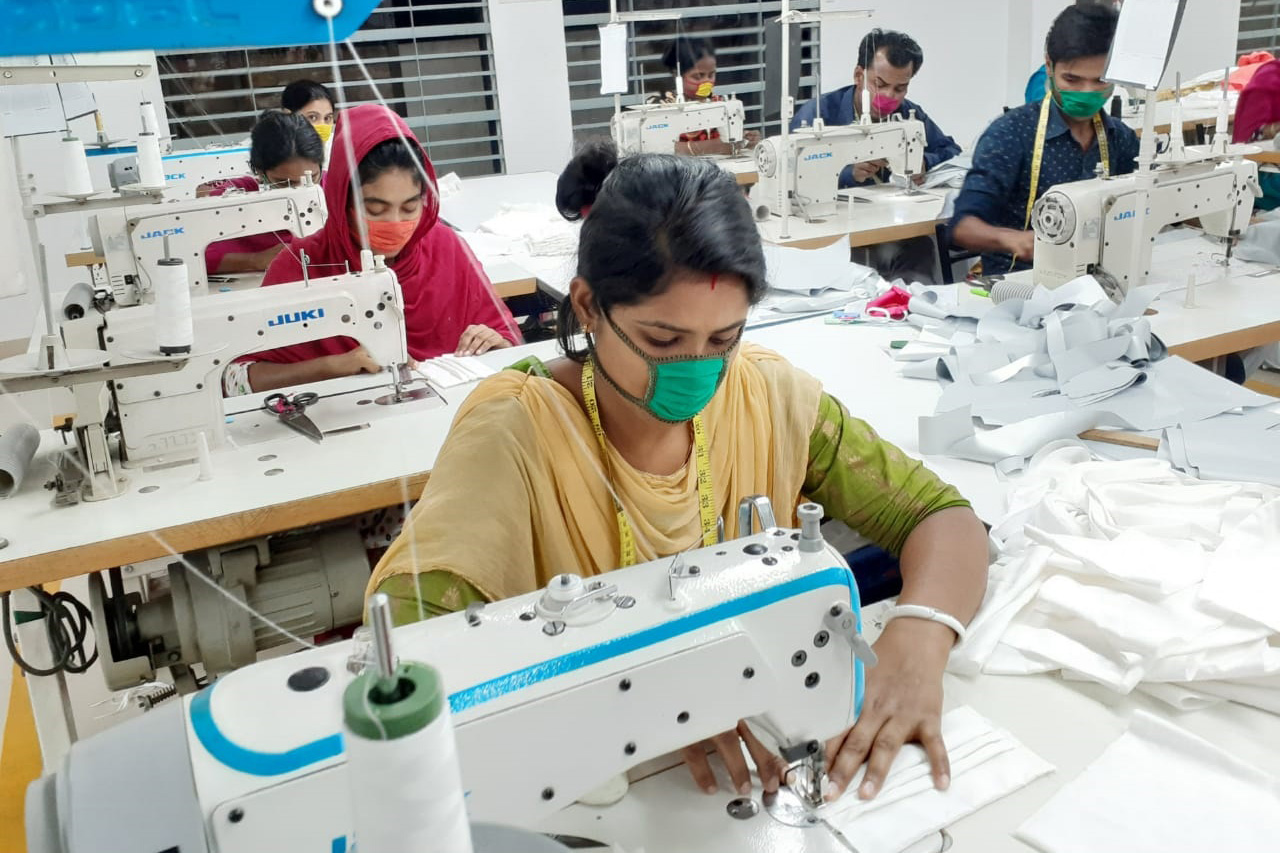
Millions of people reached with prevention messages and hygiene products
BRAC has started manufacturing over 2 lakh (200 thousand) pieces of reusable masks through its hygienic home-based production method for community use as part of the organisation's extensive campaign against COVID-19. It is also currently examining the production of personal protective equipment (PPE) and hopes to go into its production very soon.
Asif Saleh, executive director, BRAC, said in this regard, "We are rapidly expanding our capacity for effectively responding to the COVID-19 pandemic. Besides operating mass awareness campaign reaching to millions of people, we have now started production of protective wear. While we are manufacturing protective masks, we are exploring and building our capacity to manufacture PPE in our country. Once our production process is perfected following the scientific standards and standardized matrrial, we hope to go into large scale production. We then want to partner with BGMEA and other entities concerned under the government's guidance."
Meanwhile, over 50 thousand frontline healthcare providers of BRAC have started to implement its extensive awareness raising campaign to reach millions of people in 61 districts of Bangladesh to prevent COVID-19 along with distributing protective hygiene products. BRAC has also stopped collecting the installments from its microloan borrowers from 24 March to April 2. It is also running an extensive campaign at the Rohingya camps and host community as well in Cox's Bazar along with distributing soap bars and other necessary materials. In Urban slums and public hotspots it has set up hand washing stations and undertaking a disinfectant campaign in public transportations in partnership with city corporations.
So far, more than 8,500 members of BRAC staff have been provided with specific orientation on COVID-19 prevention and self-protection measures, enabling them to lead the community awareness campaign at the grassroots. More than 170,000 participants and clients of BRAC's development programmes have been briefed to strengthen community's own effort to prevent an outbreak of the disease. Over 2.5 million leaflets and 500 thousand stickers with messages were delivered door to door. Also 7,670 units of hygiene products, such as, liquid soap, sanitisers and soap bars, and 17,932 units of protective wear, such as, masks and gloves, were distributed among the community and frontline BRAC staff.
As a partner of the Bangladesh government's COVID-19 response plan, BRAC is working jointly with the local administration and government. Our staff has handed information, education and communication (IEC) materials to the offices of deputy commissioners, upazila nirbahi officers and civil surgeons. All local offices of BRAC are displaying large banners with sensitising messages of respiratory hygiene, social distancing, coughing etiquettes and hand washing. It's digital media campaign with experts and celebrities have reached over 4 million people and it is about to start a mass media campaign on fighting Corona from Thursday.
Responding to BRAC's call, several organisations have joined to undertake collaborative efforts to fight against Novel Coronavirus. The Department for International Development (DFID), the UK government's overseas aid agency, has agreed to work with BRAC to comprehensively combat the coronavirus diseases through short and long-term solutions. BRAC has enrolled 5 doctors to assist the Directorate-General of Health Services to support the ongoing hotline services to identify and assist COVID-19 patients. The partnership between the Institute of Epidemiology Disease Control and Research (IEDCR) and BRAC is now functional. On 22 March 2020, 20 doctors from BRAC joined to assist hotline services of IEDCR. BRAC is also partnering with Psychosocial Health and Wellness Centre (PHWC) and Kaan Pete Roi in launching a nation-wide tele-counselling platform soon titled "Kaan Pete Roi" for persons in distress, owing to the panic created by COVID-19.
Reiterating the urgency for more collaborations to fight the pandemic, Asif Saleh said, "We are left with no alternative at this moment but to raise ever more joint efforts. While we are happy to see our government, donors, businesses and development partners come forward, we would continue to explore more such opportunities. He urged the public to pay serious attention to the government warning and to avoid travel and maintain social distance.
Fight against novel coronavirus
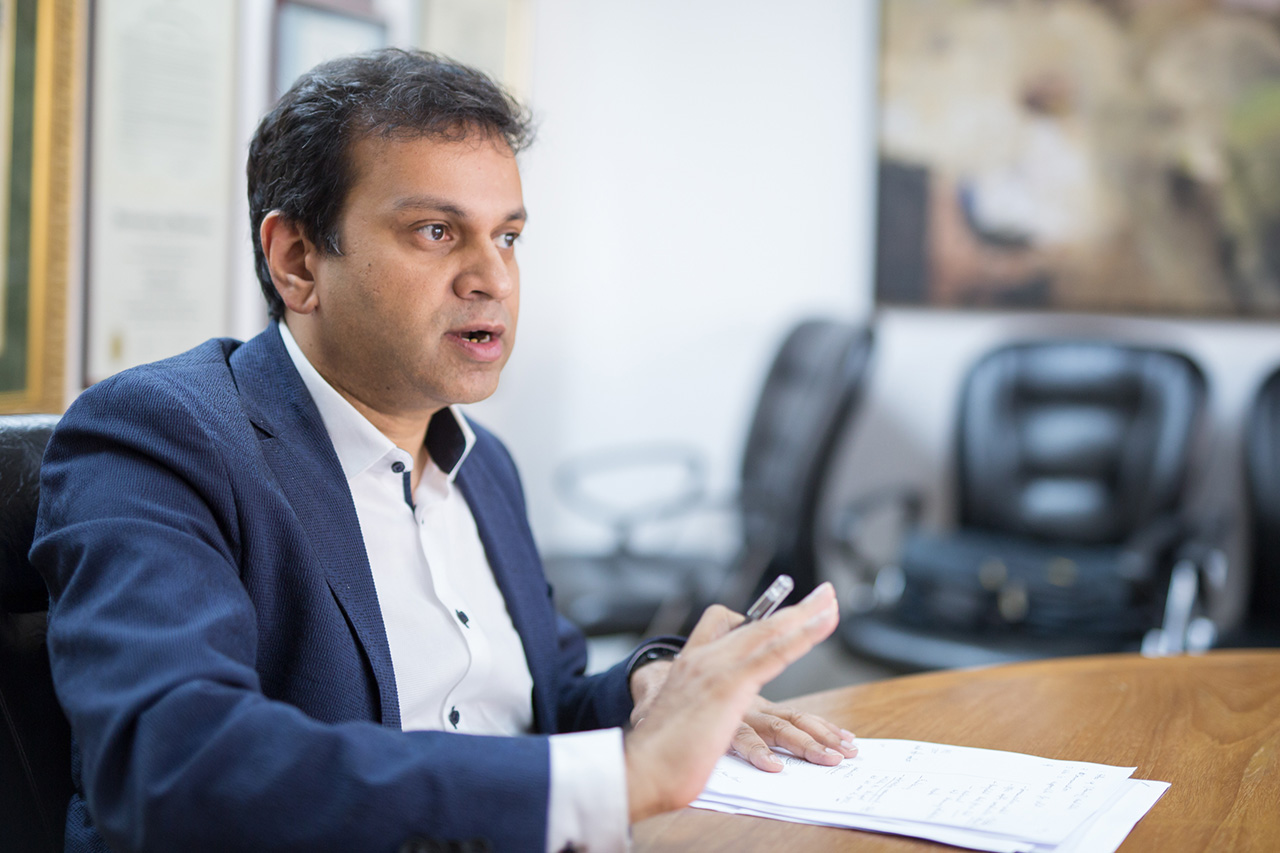
100,000 BRAC staff, volunteers working in communities to raise awareness.
BRAC has instructed all non-essential staff working at its head office in the capital’s Mohakhali to stay at home and work online from 22-25 March as a preventive measure against the Novel Coronavirus (COVID-19) infection. Approximately 2,000 members of staff work at the head office and non-essential employees constitute those who are not involved in responding to the coronavirus crisis.
BRAC Executive Director Asif Saleh said the decision has been taken as part of BRAC’s initiative to support the National Response Plan to maximise the organisation’s impact. The staff will be notified of further actions by Thursday, 19 March.
All BRAC staff at the field offices across the country will also maintain curtailed activities, Saleh said.
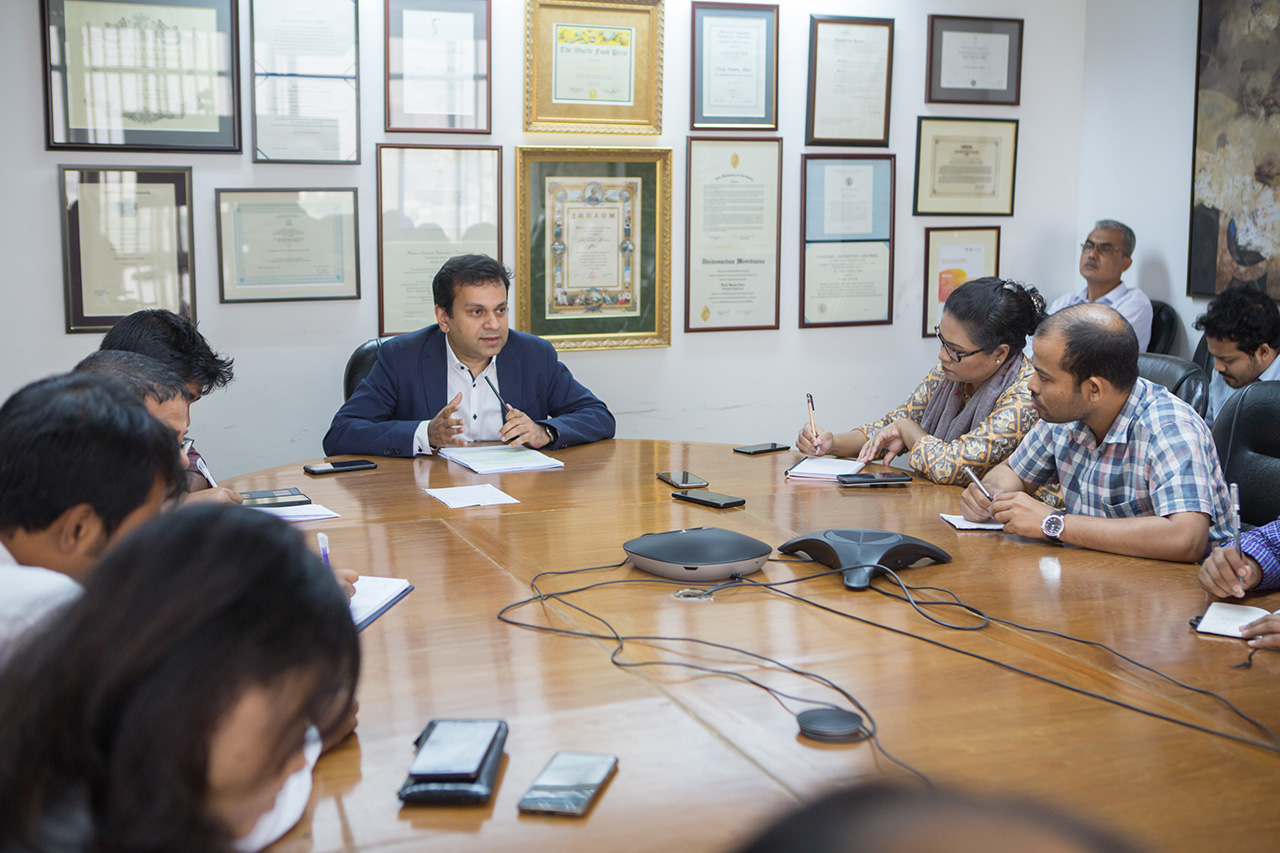 He also urged employees to avoid non-essential travels and said the interim measures will continue for a week, adding the decision will be reviewed on 28 March.
He also urged employees to avoid non-essential travels and said the interim measures will continue for a week, adding the decision will be reviewed on 28 March.
In the meantime, BRAC’s field officials working under different programmes across the country have been instructed to join the force of its health programme and act as health volunteers in different awareness campaigns for Coronavirus prevention.
“We have 50,000 community health volunteers across the country and 45,000 members of our own staff have joined the force to raise awareness against Coronavirus,” Saleh said.
Aside from working in the fields, BRAC is using its social media platforms to raise awareness. Relevant content on proper handwashing and respiratory hygiene is being regularly promoted through BRAC Facebook page and blog. BRAC has also set up a dedicated web portal http://www.brac.net/covid19/ on BRAC website where people can access concrete, reliable and updated information.
Having said that, BRAC is fully prepared to assist the Government of Bangladesh in its fight against Coronavirus. Asif Saleh also called upon the authorities to decentralise the COVID-19 testing facilities across the country to deal with the situation more efficiently.
“Currently, the Institute of Epidemiology, Disease Control and Research is the sole authority to test Coronavirus. Considering the huge number of service seekers, the government may decentralise the facilities to other hospitals across the country with necessary kits to help provide identification and treatment services,” said Saleh.
GoB will build international standard para-sports complex for athletes with disabilities
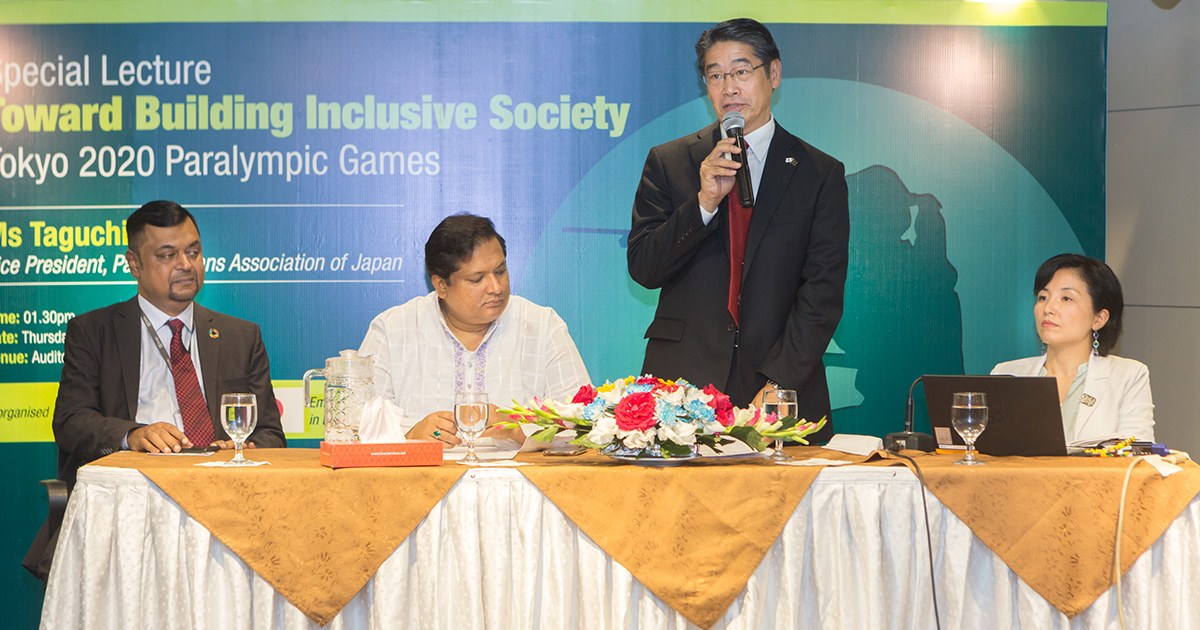
Mr Md Zahid Ahsan Russel, minister of state for youth and sports of Bangladesh, said Prime Minister Sheikh Hasina has allocated land near the National Parliament House in the capital to build an international standard complex for adaptive sports. "Athletes with disabilities will be provided with all kinds of facilities in this complex," he said in his speech at an event today on Thursday (5 March) at the BRAC Centre at Mohakhali in Dhaka city.
The event, a special lecture followed by a press briefing, was organised on the occasion of Dhaka visit by Ms Aki Taguchi, former celebrated athlete of Paralympic and currently vice president of Paralympians Association of Japan. The visit is part of a campaign to raise public awareness about the Paralympic Games and the importance of establishing an inclusive society for the greater wellbeing of everyone, particularly the persons with disabilities.
The Embassy of Japan, in cooperation with BRAC, arranged the programme with state minister Mr Md Zahid Ahsan Russel being present as the guest of honour. Mr Ito Naoki, Japanese ambassador in Bangladesh, also addressed the audience at the event.
Ms Aki Taguchi, said, "Persons with disabilities have a lot to contribute to the wellbeing of the society. Twenty-five years ago, I received severe injury in my spinal cord in an accident. I could not stand on my feet. Later on, I took up beam rifle. At one point, I represented my country in the Paralympic Games and made history as I had passed into the final round."
Calling on the persons with disabilities in Bangladesh to engage in sports, she further said, "I want persons with disabilities to come forward to take up sports and bring honour for Bangladesh."
Ms Taguchi represented Japan in the shooting events for three years in a row at the Paralympic Games which are Athens 2004, Beijing 2008 and London 2012.
Beforehand in the morning, she visited the Neurodevelopmental disability centre (NDD) operated by BRAC Education Programme in Korail slums in the capital. Later she remarked, "During my visit to the BRAC School, I had caught sight of a school playground nearby. There I saw all other children were playing with the children with disabilities. It's a scene that you'll witness in a very few countries of the world. BRAC is doing commendable work. This is what the reality should be everywhere."
BRAC ranked #1 NGO in the world for the fifth consecutive year

The organisation maintains its top ranking as it continues the legacy of late founder Sir Fazle Hasan Abed
BRAC has been ranked the world’s number one non-governmental organisation (NGO) of 2020 by NGO Advisor, an independent Geneva-based media organisation. BRAC, a leading development organisation based in Bangladesh, retained its top spot in part due to its robust leadership and governance structure and continued commitment to systemic change.
“We are deeply grateful and humbled to receive this accolade. 2020 will be the first year for BRAC family without our Founder, Sir Fazle Hasan Abed. We take this recognition as a reminder to be worthy of his legacy and continue the fight for a world free from all forms of exploitation and discriminaton,” said Ameerah Haq, Chair, BRAC Global Board.
After nearly five decades of experience in Bangladesh and beyond, BRAC recently announced a new 2030 strategy that prioritises scaling its global reach, targeting participants with multiple interventions, and developing collaboration and knowledge-sharing leadership across the development sector. In 2019, it formed a new Global Board to lead and implement this strategy.
“In the BRAC Global Strategy, Sir Fazle has set an audacious goal for us, empowering at least 250 million people to have control over their own livelihoods by 2030. We’ll keep striving every day to make his vision a reality,” Ms Haq added.
Jean-Christophe Nothias, Editor-in-Chief and CEO of NGO Advisor, cited BRAC’s renewed commitment to innovation and impact and its advanced preparations to transition leadership and governance responsibilities to the next generation of leaders as key factors that contributed to the number one ranking.
“This 2020 list is launched with excitement as the social profit sector keeps growing and transforming the world, but also with sadness as the founder of BRAC, Sir Fazle, passed away in 2019,” wrote Jean-Christophe. “He was a man of outstanding stature and humanity; he was at the forefront of systemic changes we are still aiming for. We have reason to believe that BRAC is on its way to pay a sustainable tribute to its founder by keeping its leading, driving role in the social profit sector.”
NGO Advisor publishes rankings for the top 500 global NGOs each year, drawing upon publicly-available data and focusing on impact, innovation, governance, and sustainability as key factors informing the rankings.
2020 marks BRAC’s fifth consecutive year in the number one spot. BRAC shares the top five with several high-impact peers, including Médecins Sans Frontières, Danish Refugee Council, Open Society Foundations, and Mercy Corps.
Skills development to create employment for the youth

Technical education yet to get popularity among women
A significant portion of the youth currently has access to social media, especially Facebook, and this access can be used to empower the youth with skills and spread the knowledge of technical and vocational education and training (TVET). Besides, initiatives must be taken to involve women, who are found to be reluctant to get involved in technical education. They must be encouraged to participate in TVET.
These are some of the key findings of a study BRAC has conducted recently, under a project funded by the Embassy of Denmark, which aims at changing the youth’s perception of skills training. BRAC Institute of Educational Development (BIED) conducted the study.
To disseminate the findings of this study, BRAC Skills Development Programme organised an event at the conference room of National Skills Development Authority (NSDA) at the capital’s Tejgaon on Sunday, 01 March 2020.
The study aimed at identifying the perception of the youth, their guardians and the relevant stakeholders about technical and vocational education and training; and making the respondents aware of the importance of enhancing skills through technical, and information and communication technology training.
Dr Ahmad Kaikaus, Principal Secretary to the Prime Minister, addressed the event as chief guest. NSDA Executive Chairman, Golam Md Hashibul Alam attended the event as a special guest. Director of BRAC Skills Development Programme Brig Gen Aftab Uddin Ahmad (retd) presided over the event.
To explore and enhance public perception towards skills training and subsequent employment, BRAC conducted the study among a sizable number of youth, aged between 18 and 35 years, and having the minimum educational qualification of Secondary School Certificate, with their parents and other stakeholders to assess their understanding and perception of TVET. The survey was conducted at 22 subdistricts and police stations across 10 districts under three divisions.
The study found that 67 percent of the youth respondents and 54.2 percent of their parents perceive TVET as a way of preparing the youth for employment.
Eleven percent of the youth reported to the scope to study TVET in their own school at the secondary level but only 3.2 percent received such education. While the opportunity of getting a job promptly was the biggest motivation for 46.2 percent of those who studied technical education, TVET as a stream of education did not come to mind for 43.8 percent of the youth.
One of the key findings of the study is that the youth think TVET can help ‘to get a job quickly’ and it is more likely to be accepted by men than women as the former ‘are likely to take responsibility to run their families’. Other findings include that, access to the internet is essential for the spread of TVET and Facebook is the most effective digital platform to build awareness on technical and vocational education. TVET has a higher percentage of positive acceptance among the rural youth and urban parents rather than their respective counterparts.
Addressing the event, Dr Kaikaus said, “We will step cautiously towards our goal of achieving the Sustainable Development Goals (SDGs) and shaping up skilled people, and creating jobs for them is crucial for that. There are misconceptions about skills itself and people need to understand that a skill is attainable irrespective of the demographic dividend.”
“The youth constitutes 67 percent of the labour force and they can work with the experienced demographic as long as both groups are eager. We need to reap the benefits of the fourth industrial revolution and a skilled youth demographic is a precondition for that,” he added.
Special guest Mr Hashibul Alam said, “Public private partnership is a crucial medium to harbour skills and it can play a huge role in transforming the nation. The government is committed to deploy its resources whenever and wherever necessary”, Alam added.
The former Principal Secretary to the Prime Minister and Senior Adviser to BRAC, Mr Abdul Karim, said “BRAC can work very hard for effective globalisation. Our participation in the fourth industrial revolution is extremely important and BRAC will keep an eye so that more and more skilled people can join the nation’s workforce,” he added.
Refika Hayta, Deputy Head of Mission of the Embassy of Denmark, said “It is more important to chase the youth who are not in education and not employed. It is a challenge to address the SDGs and we are making sure that no one is left behind”, she added.
“We feel there is a need for perception change and the youth are not ready for changes. They need to be influenced through better navigation. Experience in other countries shows that technical skills give more employment and we need to make the youth interested in attaining that,” she added.
The youth constitutes 27.5 percent of the total population in Bangladesh. Over two million young people enter into the labour force every year.
Enhancement of skills development, especially for the youth, has been a point of attention globally and technical and vocational education has been regarded as essential tools in the Sustainable Development Goal (SDG) to meet the challenge of employment. The Government of Bangladesh also considers this as a national priority and accordingly treats TVET as a crucial component to address the issue of personal and economic development in the National Skills Development Policy.
To assist the government in creating skills-related opportunities for such a large number of youth, BRAC – the largest international development organisation, has prioritised skills training and employment for the youth in its development programmes.
To influence changes in the existing understanding and perception about technical and vocation study, the BRAC study emphasises on organising mass campaigns at the community and school levels along with branding and promotional initiatives.
Adopting special initiatives for enhancing female perception on TVET, organising training with special focus on ICT use, and ensuring a global standard of the TVET curriculum and training module are other priorities.
Registration for Frugal Innovation Forum 2020 is open now
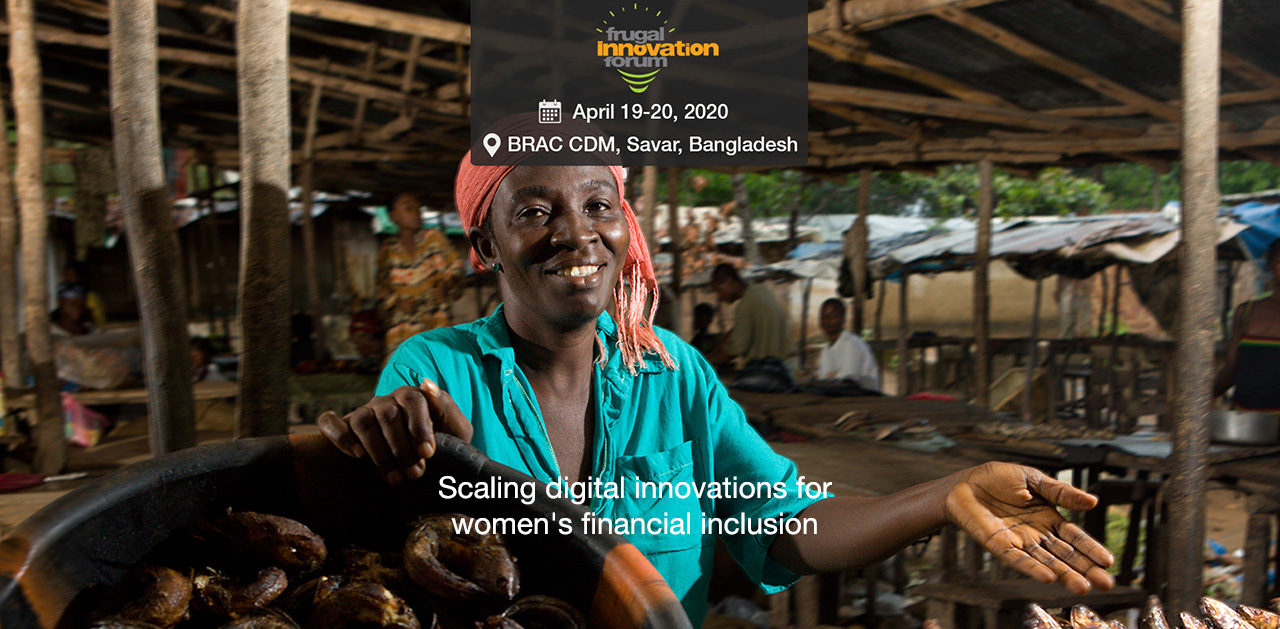
Registration for 7th Frugal Innovation Forum began from 20 February (Thursday). This year’s conference will be held from 18 April until 20 April at BRAC CDM, Savar, Dhaka. Interested participants must register by 15 March 2020.
The forum, organised by BRAC, will explore digital solutions to the challenges in financial inclusion. The theme for this year is “Scaling Digital Innovations for Women’s Financial Inclusion”.
The three-day conference will connect practitioners, thinkers, researchers, policymakers and financial ecosystem partners from Global South. There will be interactive panel sessions, debates, innovation pitch and networking sessions on how we can find simple solutions to the many challenges that impede women’s financial inclusion. For details: http://innovation.brac.net/fif2020/
BRAC and Unilever launch disabled-friendly modern WASH centre in Khulna
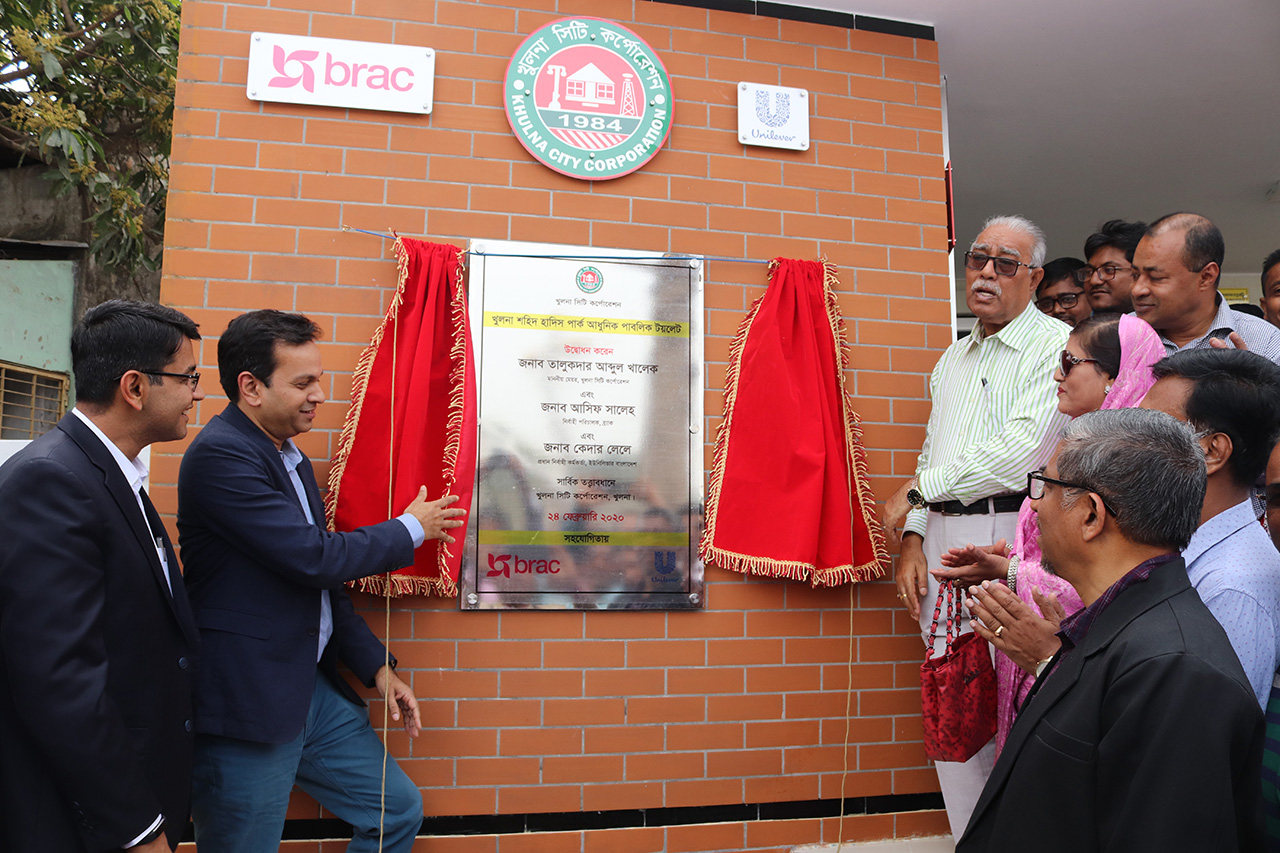
BRAC and Unilever Bangladesh Limited jointly launched a public toilet with features for persons with disabilities at Shaheed Hadith Park in Khulna city today on Monday, 24 February. The facility provides separate toilets for men and women along with standard hand-washing space and safe drinking water. In addition to these, there are options for women to change sanitary napkins and their babies' diapers and also have access to a safe and hygienic breastfeeding chamber.
The public toilet will be managed by Khulna Nagar Unnayan Mohila Samabay Samiti, a local women's cooperative with around 80,000 members.
Talukder Abdul Khalek, mayor of Khulna city, inaugurated the facility at the event also attended by Asif Saleh, Executive Director, BRAC, Kedar Lele, Chief Executive Officer and Managing Director, Unilever Bangladesh Limited, and Liakath Ali, Director, Urban Development Programme, BRAC.
Close circuit TV cameras have been installed at the entry and exit points of the facility to ensure tight security.
At the inauguration event, Mr Khalek said, “This public facility sets a good example of collaboration between public, private and community. We have to ensure that it is not used for any unwanted purposes. More such modern and inclusive toilets will be built in our city in the future."
Mr Saleh said, “Safe sanitation is a major challenge in urban areas of Bangladesh, especially for women and girls. This initiative has aimed to address that very problem. This is a unique example of public-private-social sector partnership which brought a sustainable solution for people living in poverty in the urban space."
Mr Lele said, “Access to sanitation is a basic human right, but not everyone is privileged enough to get it. With various features installed in this toilet, this partnership not only aims to provide sanitation, but aims to develop basic cleanliness habits. We believe only providing sanitation is not sufficient enough, but instilling hygiene habits is a necessity too. Through our products we focus on betterment of health and saving lives. As Unilever, we wish to see Bangladesh with proper sanitation services and this is just the beginning of a revolution. I thank BRAC and the honourable mayor of Khulna City Corporation for making us a partner for this initiative.”
The newly built public toilet will be maintained by professional cleaners and female caretakers with government supervision. BRAC Urban Development Programme, under a memorandum with Unilever Bangladesh Limited constructed the facility on the land allocated by Khulna City Corporation, aligning with the government's public-private-partnership policy.
Light Engineering Fair concludes with BDT 20M work order
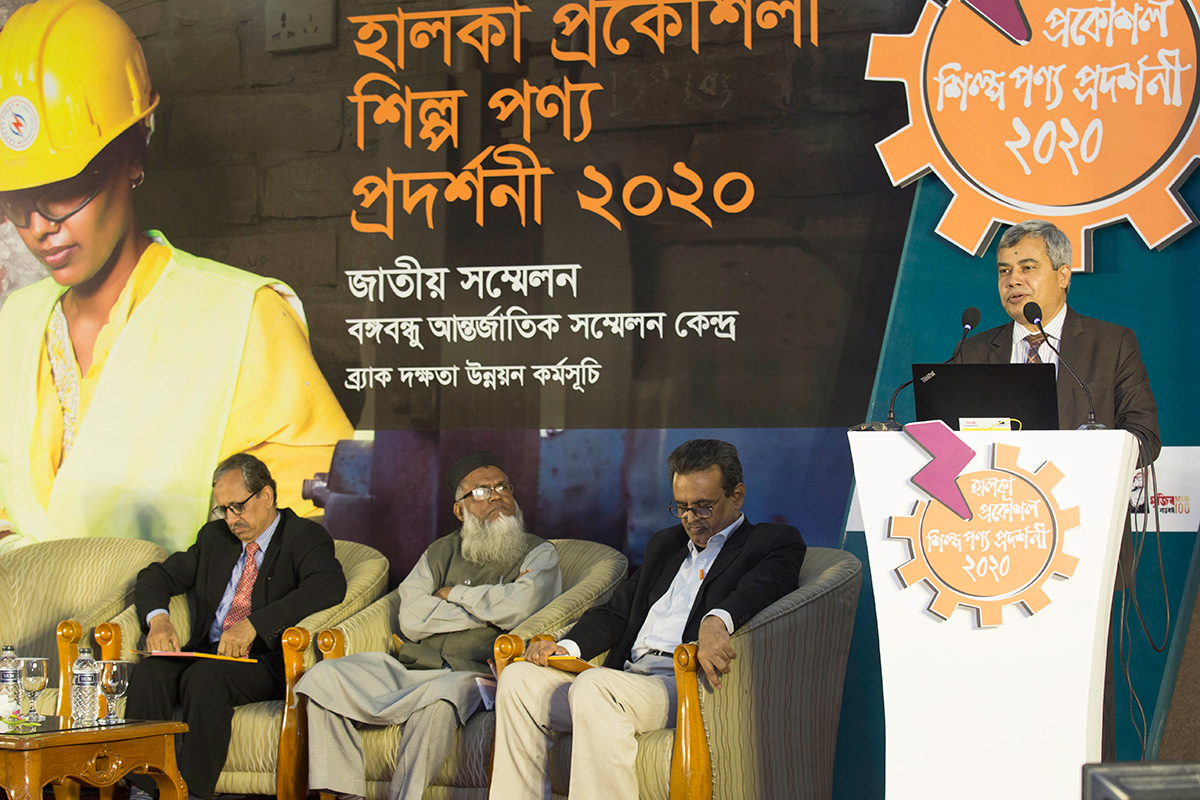
Engaging the youth in productive activities and encouraging them to become entrepreneurs is the best thing we can do to boost the economy. If the youth decide to be entrepreneurs, they will be able to provide livelihood opportunities to the unemployed people and contribute to the economy. Access to finance, technology and skills training are crucial for the light engineering sector to attract the youth.
Experts made these observations on Tuesday, on the final day of the two-day ‘Light Engineering Trade Fair’ organised by BRAC at Bangabandhu International Conference Centre in Dhaka. Director of BRAC Skills Development Programme, Brig Gen Aftab Uddin Ahmed (Retd) chaired the day’s discussion event. The fair was held under BRAC’s ‘PRo-poor Growth of Rural Enterprises through Sustainable Skills-development’ (PROGRESS) project funded by European Union. A total of 58 small businesses participated in the fair from 41 districts and received work orders worth BDT 20 millions.
The three-year PROGRESS project began in February 2017, to support the growth of the country’s light engineering sector by developing dynamic and competitive micro and cottage enterprises.
Inaugurating the event on Monday, Salman F Rahman, Private Industry and Investment Adviser to the Prime Minister, lauded BRAC’s gender-inclusive strategy and stated that public-private partnership is one of the reasons the light engineering sector is flourishing.
“The basic weakness of our economy is our excessive dependence on the readymade garments industry. We have to diversify our export capacity and products in which the light engineering sector will play a crucial role,” he said.
Addressing the event today, Secretary to the Ministry of Industries, Mr Abdul Halim emphasised engaging the youth in productive activities and said that encouraging the youth to become entrepreneurs is the best thing to do to boost the economy.
“Access to finance is a significant area and we need whatever you want in written form so that we can work on the issues entrepreneurs face. I want to thank BRAC for bringing approximately 5,000 light engineering entrepreneurs under the same project. I would request them to keep these people under their umbrella so that they can avail benefits through BRAC. I would also request Bangladesh Small and Cottage Industries Corporation (BSCIC) to enlist these 5,000 entrepreneurs in their database,” he said.
Also present at the event, Mr Mokammel Hossain, Additional Secretary (SDGs) to the Prime Minister’s Office, echoed the chief guest and said if the youth decide to be entrepreneurs themselves rather than running behind jobs, they will be able to provide jobs to the jobless and contribute to the economy.
“Women constitute half of our total population and if they lag behind, the country cannot move ahead. BRAC’s gender policy, women’s inclusion in skills development training, inclusion of women in mainstream employment and disability-inclusive policy is exemplary and praiseworthy,” he added.
President of Bangladesh Engineering Industry Owners Association, Mr Abdur Razzak, pointed out that the government has taken significant initiatives for the light engineering sector and that those are being implemented through the BSCIC.
“Our association, from its experience, has identified five areas that need to be improved in the light engineering sector. Access to finance, technical updates, sustainable training, policy support and a planned industrial park will help the light engineering sector to flourish and help other sectors with its products,” Razzak added.
Speaking on the occasion, Bangladesh Bank General Manager Lila Rashid noted the fact that several of the experts identified access to finance as the decisive factor that is affecting the growth of the light engineering sector.
“This sector is also very important to us and that is why banks allocated 21 percent of their total loans to the SME sector last year and the cottage and small industries received a significant amount of the total disbursement. We believe the light engineering sector has a huge potential to attract finance from the financial institutions,” she said.
A study by the project shows that the business productivity of light engineering workshop owners increased by 29 percent after the project intervention. A total of 500 people received training and support facilities to start their own businesses and among them 223 were female.
Approximately 9,865 youth received apprenticeship-based training, 98.65 percent of them were placed in jobs. 5,182 light engineering workshop owners received technical upgrade training. Besides, 5,289 workshop owners received training on fair work conditions and health and safety at work. 700 market committees received gender awareness and access to finance training.
Effective collaboration, finance, training and tech support will boost light engineering sector
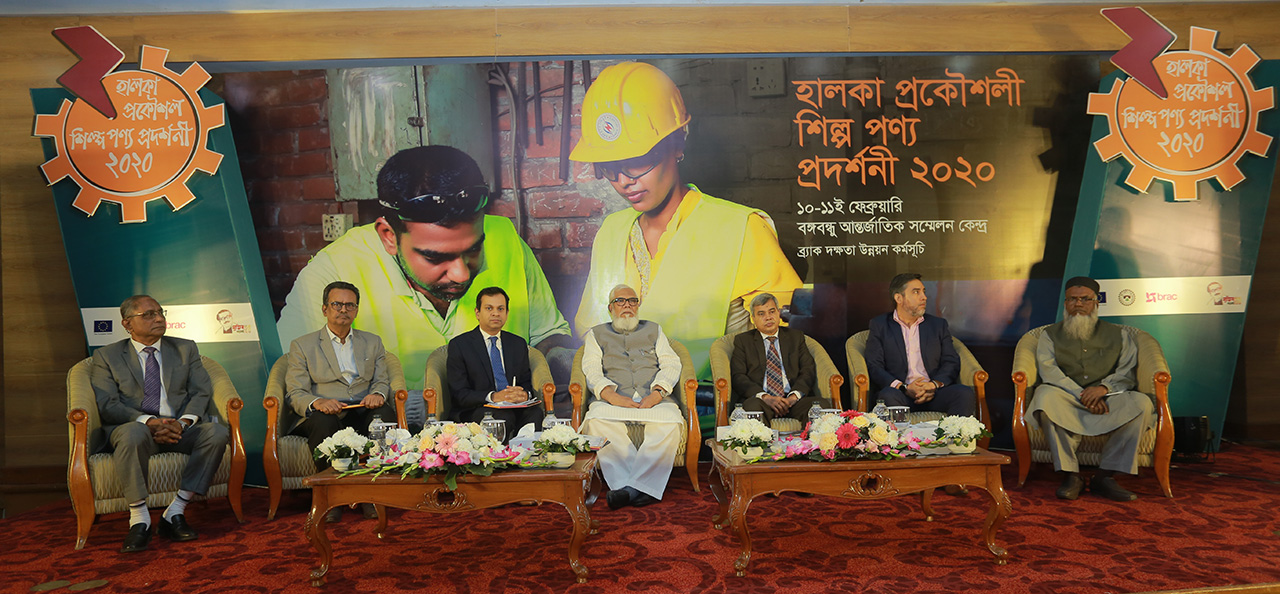
Light Engineering Trade Fair showcases 58 businesses from 41 districts
Diversification of the light engineering sector depends on effective policy support, public-private partnerships, technical and business information, innovation and sustainable development of technology and related products. Capacity development of industries, research and development facilities and removal of other barriers are also needed to boost the sector.
Experts made these observations while speaking on Monday at the inaugural ceremony of the two-day ‘Light Engineering Trade Fair’ organised by BRAC at Bangabandhu International Conference Centre in the capital. The fair is being held under BRAC’s ‘PRO-poor Growth of Rural Enterprises through Sustainable Skills-development’ (PROGRESS) project funded by European Union.
The three-year PROGRESS project began in February 2017, to support the growth of the country’s light engineering sector by developing dynamic and competitive micro and cottage enterprises.
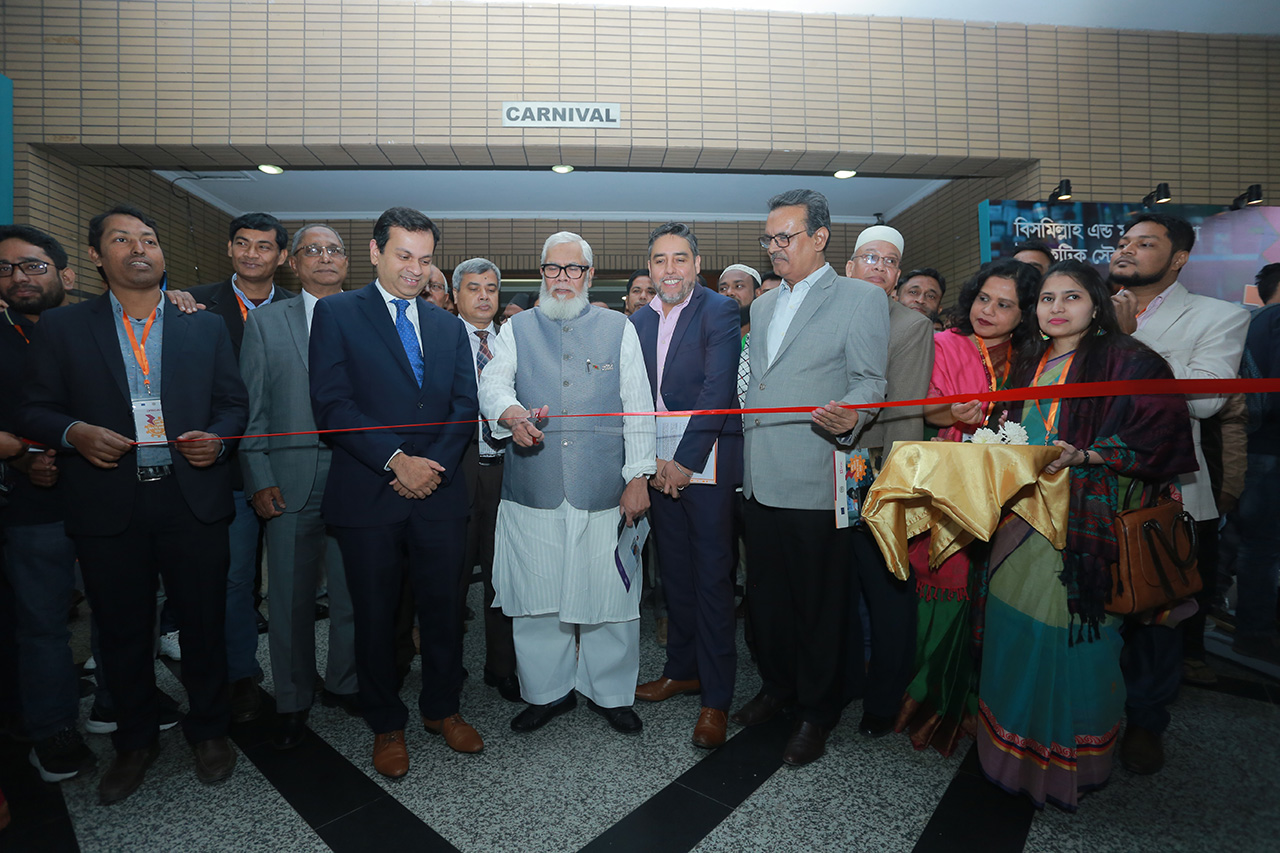
Addressing the event as the chief guest, Salman F Rahman, Private Industry and Investment Adviser to the Prime Minister, lauded BRAC’s gender-inclusive strategy and said public-private partnership is one of the reasons light engineering sector is flourishing.
“The basic weakness of our economy is our excessive dependence on the readymade garments industry. We have to diversify our export capacity and products in which the light engineering sector will play a crucial role,” he said.
Manfred Fernholz, First Secretary of The Food and Nutrition Security and Sustainable Development Section of the European Union Delegation in Bangladesh, urged the government and the financial institutions to extend their support to the small engineering sector.
“The contribution of the light engineering sector measures up to 2.2 percent to Bangladesh’s GDP. Yet the sector has been suffering from lack of tech and financial support, skills development and infrastructure, which in turn makes the sector less competitive.”
Abdur Razzak, President of Bangladesh Engineering Industry Owners Association, observed that import of capital machinery requires only one percent import duty and no vat. “But 15 percent VAT on local production of the same capital machinery has been imposed to be effective from 1 July 2020. We want the VAT to be entirely lifted,” he said.
Chair of the event, Asif Saleh, Executive Director of BRAC, said, “We as an organisation continue to focus skills development in our 2020-2025 strategy as a committed development partner of the Bangladesh government. To effectively grow the skills development sector, Bangladesh must turn around its conventional perception about degree-based education and remove the stigma attached to vocational education,” he added.
Currently, 47 percent of our university graduates are unemployed and the solution lies in skills-based education focusing on the contemporary and future market needs, he said, adding, “Bangladesh government is doing the right thing by prioritising the light engineering sector in Mujib Barsha of 2020.”
A study by the project shows that the business productivity of light engineering workshop owners increased by 29 percent after the project intervention. A total of 500 people received training and support facilities to start their own businesses and among them 223 were female.
Approximately 9,865 youth received apprenticeship-based training, 98.65 percent of them were placed in jobs. Owners of 5,182 light engineering workshops received technical upgrade training. Additionally, 5,289 workshop owners received training on fair work conditions and health and safety at work. Seven hundred market committees received gender awareness and access to finance training.
Women behind the wheel for road safety
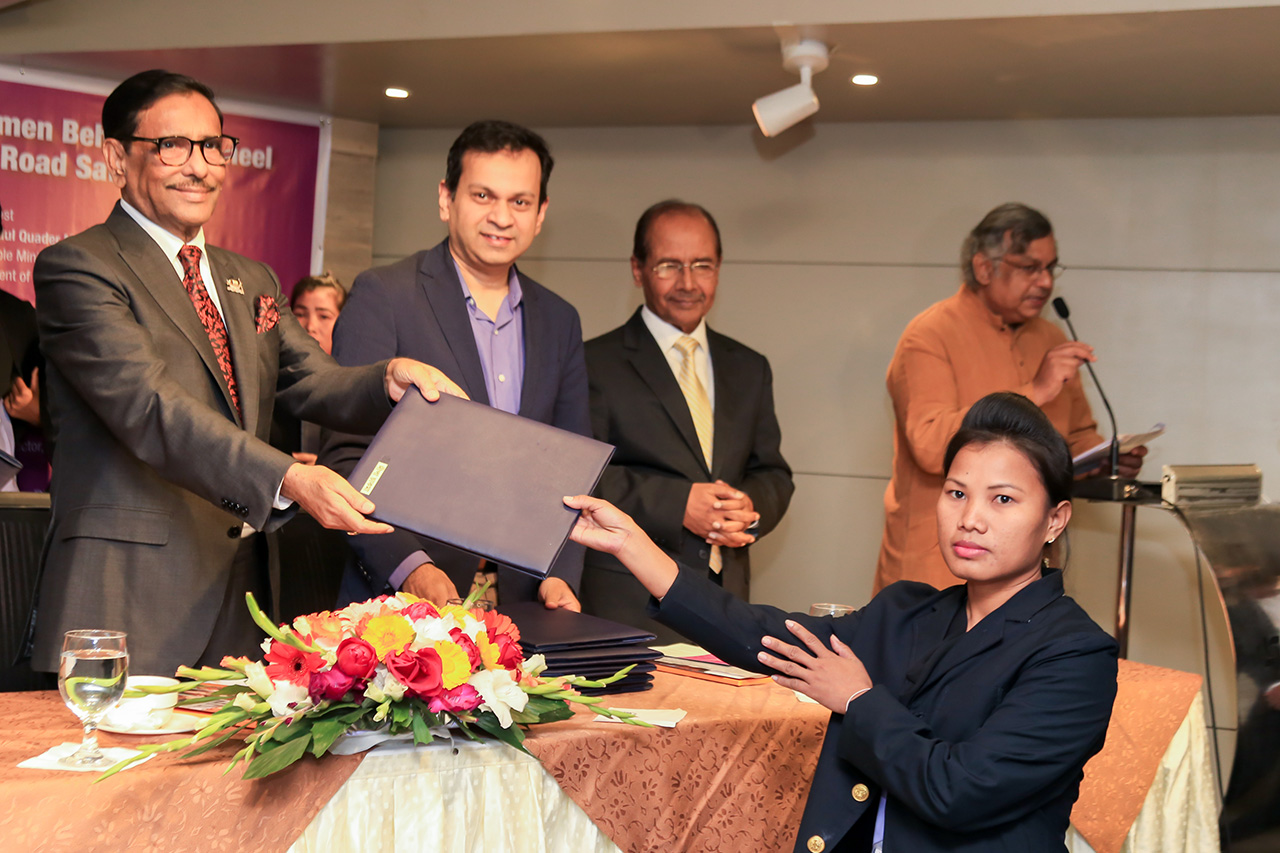
Mr Obaidul Quader, Minister of Road Transport and Bridges, said, “Women drive vehicles abiding by the rules and in a calm manner. They are usually not substance abusers. They do not talk on mobile phones while driving. So the more women will be appointed as professional drivers, the lesser will be the risks of road accidents.”
The minister’s comment came today on Saturday (25 January) as he was addressing an audience as the chief guest of a ceremony to hand out certificates to women who successfully completed a course at BRAC Driving School in Dhaka city. Ms Kazi Rowshan Akhter, Secretary of the Ministry of Women and Children’s Affairs, attended the event titled ‘Women behind the wheel for road safety’ as special guest. Mr Asif Saleh, executive director of BRAC, chaired the ceremony.
BRAC’s initiative to train women as professional drivers to promote both road safety and women-friendly commuting system has drawn praise at home and abroad. This ceremony was organised for the 8th batch of learners in which 11 women enrolled and all of them passed and received driving licences. The 3-month training was conducted at BRAC Learning Centre at Uttara in the capital.
The ceremony began with one-minute silence paying tribute to the memory of BRAC’s founder Sir Fazle Hasan Abed. The main event started with a presentation titled ‘Women behind the wheel for road safety’ by Mr Ahmed Najmul Hussain, director of BRAC Administration and Road Safety Programme. According to the presentation, BRAC started its driving school in 2011, mainly to train people from disadvantaged families to produce skilled and quality professional vehicle drivers. Its 3-month residential course curriculum includes basic driving skills, safe driving techniques, basic repairs skills and professional conduct.
Mr Obaidul Quader further said in his speech, “We want other institutions to come forward to help women gain self-dependence. The aim of these initiatives will simply go in vain if women fail to get jobs even after successfully completing such several-month long courses. So both the government and private sectors have to clear their way to recruit women drivers. The government will consider this issue with more importance from now on.”
Kazi Rowshan Akhter in her secretary’s speech said, “It is also from a BRAC’s research we have learned that 94 percent women public transport users face one or other kind of sexual harassment. Women drivers in our country also deal with many kinds of challenges. We have to join hands in finding the roots of those challenges as well as the solutions.”
Ms Mercy Miyang Tembon, country representative of World Bank for Bangladesh and Bhutan, noted writer and researcher Mr Syed Abul Maksud, BRAC’s director Ms Anna Minj and representatives from Gono Shasthya Kendra, Nirapad Sarak Chai movement and road transport owners association were also present at the event.
Organisers further said BRAC Driving School so far trained 7,388 individuals in basic driving among which 1,973 are women. It trained 10,373 in professional driving of which 214 are women. A total of 599 women received training in motorbike driving. A large number of graduates from the BRAC Driving School are successfully working for different local, international and corporate organisations.
Since 2011, under BRAC’s community road safety awareness programme, over 1.2 million people have received training on safe use of roads. Also 5,451 schoolteachers and 498,000 schoolchildren received special awareness training on safe road use.
BRAC’s executive director Mr Asif Saleh in his chair’s speech said, “BRAC is considering taking its driving training school to every division and district of the country. BRAC also wants to establish a road safety institute. BRAC will continue its collaborative work with the government in future to ensure road safety, particularly to create a women-friendly road and transport system.”
More...
Join the world’s biggest family

